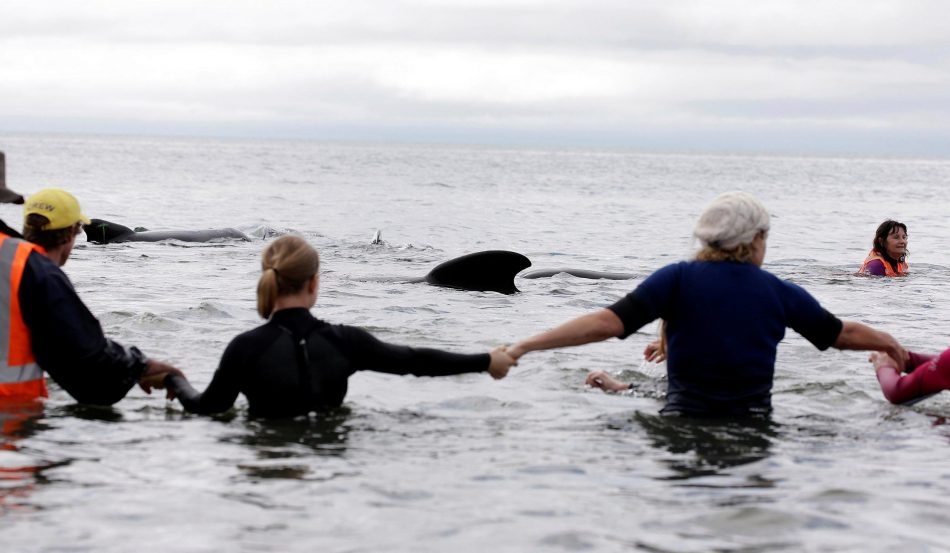A pod of 49 long-finned pilot whales was found stranded on a remote beach on the South Island of New Zealand on Monday, prompting wildlife rangers to initiate a mission to keep the whales alive and in deep waters. With the rangers joined by local residents and a whale rescue group, a total of 150 people worked together to drench the whales with buckets of water and ensure they kept the pressure off their fins until the tide would rise again.
Nine of the whales had been found dead upon arrival, but the volunteers managed to keep all the other whales alive on Monday. When the tide finally rose late Monday, the volunteers formed a human chain and guided the whales back into deeper waters where boats moved back and forth to prevent the whales from swimming back to shore.
While we would like to end the story there, the pod of whales was found stranded once again on Tuesday morning, only this time there were only 28 whales alive. With the whales looking weak and languid, volunteers started rocking the whales and attempting to direct them into deeper water. The formation of another human chain helped push the animals deeper into the water, and by early Tuesday afternoon, the pod had successfully swum offshore—much to the relief of the volunteers.
“Volunteers have been pulled out of the water now because the whales are swimming below the low tide zone and heading out to sea,” said local Department of Conservation ranger, Andrew Lamason. “That’s really good news; such good news that I’m going home.”
New Zealand’s South Island is no stranger to beached whales. Part of the reason this happens is because of the region’s unique geographical shape, which looks like a hook and causes a whale’s echolocation signal to bounce back. This disorients the whale into shallower and unsafe waters, creating a natural trap.
Although not all the beached long-finned pilot whales were saved this week, we applaud the tireless efforts from local volunteers to rescue all the whales they could manage to rescue.












